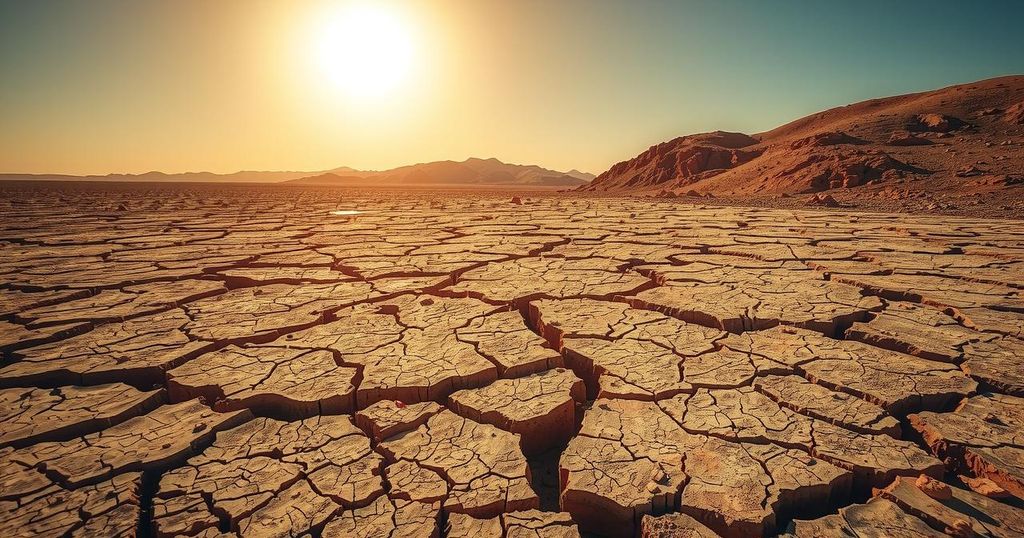A recent study indicates that women and girls in South Sudan are facing intensified health risks and deeper inequalities due to climate change and extreme heatwaves. These heat events have disrupted education, increased maternal health risks, and perpetuated societal burdens on women. Solutions include enhancing school infrastructure and transitioning away from fossil fuels to mitigate future risks.
Recent research highlights that women and girls in South Sudan are facing heightened health risks and growing inequality due to escalating climate-driven heatwaves. Published by the World Weather Attribution (WWA) group ahead of International Women’s Day on March 8, findings reveal that February’s extreme heat was increased by approximately 10 times and became 2 degrees Celsius warmer due to human-induced climate change.
In February, a severe heatwave caused numerous students to collapse from heatstroke in Juba, prompting temporary school closures. This marked the second instance in recent years that the country has shut down schools during such heatwaves, indicating an alarming trend as temperatures soared to 45 degrees Celsius in previous years. The occurrence of high temperatures this early in the year is considered unusual by researchers.
Most educational facilities in South Sudan are inadequately designed, with iron roofs that trap heat and lack proper ventilation or air conditioning. As high temperatures persist, these conditions become increasingly intolerable for students. The women and girls are disproportionately affected by the disruptions caused by school closures, exacerbating existing educational inequalities.
Women are often responsible for household tasks and jobs that expose them to extreme weather, increasing their risk of heat-related illnesses. To alleviate these risks, experts recommend enhancing ventilation in schools, planting trees, and adopting lighter paint colors to help mitigate heat levels. Additionally, adjusting school schedules may help prevent significant educational disruptions.
Persistent societal norms and poverty mean that women in South Sudan bear the brunt of climate vulnerability. According to Friederike Otto from WWA, the negative impacts of climate change disproportionately affect women due to their existing social roles. The research indicates that the burning of fossil fuels exacerbates extreme weather events, further endangering the well-being of women.
The peer-reviewed study composed of 17 researchers revealed detrimental health impacts from the heatwaves, including increased risks of miscarriage and stillbirth. South Sudan experiences some of the highest maternal mortality rates globally, with approximately 1,223 deaths per 100,000 births. This alarming statistic underscores the serious dangers that extreme heat poses to maternal health.
As the researchers observed, rising temperatures are however, not rare events. With about 1.3 degrees Celsius of global warming attributed to human activities, such extreme heatwaves are expected to occur more frequently unless significant changes in fossil fuel usage are made.
Experts predict that if humanity cannot transition away from fossil fuel dependence, dangerous heatwaves in South Sudan might become an annual occurrence by the year 2100, intensifying hardships faced, particularly by women in the region. Sarah Kew of WWA stated that extreme temperatures above 40 degrees Celsius are becoming commonplace, highlighting the urgent need for action against climate change.
The findings underline the urgent and disproportionate impacts of climate change on women and girls in South Sudan. Heightened health risks, educational disruptions, and escalating maternal health issues signify a deepening inequality exacerbated by extreme heatwaves. Addressing these challenges requires immediate interventions to improve educational infrastructure, alleviate gender inequalities, and transition away from fossil fuels to safeguard the lives and futures of affected populations.
Original Source: www.climatechangenews.com






